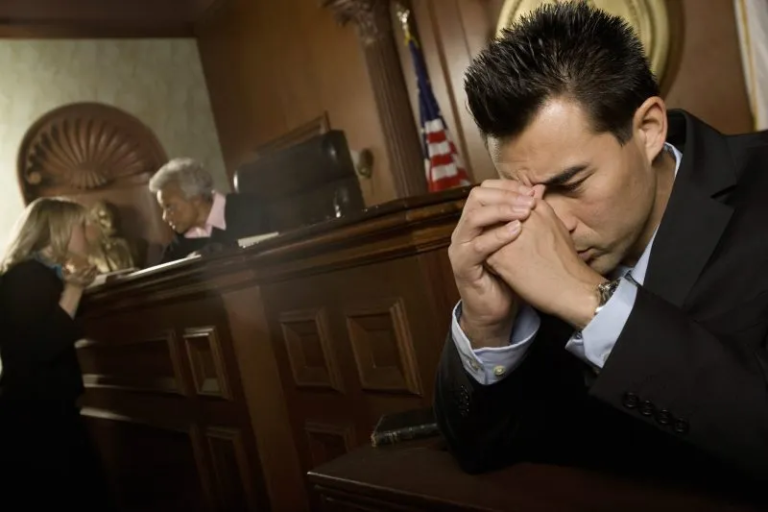When facing drug charges in Georgia, understanding the legal process can be overwhelming. Drug defense trials can be complex, but with the right defense strategy and experienced legal counsel, you can navigate this challenge effectively. As a seasoned defense attorney, I have helped numerous clients fight drug charges and protect their futures. Let’s dive into what you can expect during a drug defense trial in Georgia.
Best Defense Lawyer in Georgia
Jennifer Scalia
- Call: (470) 505-9791
- Email: jennifer@lawofficeofjenniferscalia.com
- Address: Law Office of Jennifer Scalia, Cumming, Georgia, United States
1. Arrest and Initial Charges
The drug defense process typically begins with an arrest. Whether the charges involve possession, trafficking, or distribution, the arrest is often followed by formal charges filed by the prosecution. During this stage, it’s crucial to contact a defense attorney as soon as possible. Early intervention can play a significant role in building a strong defense.
Your attorney will review the circumstances surrounding your arrest, including whether:
- Law enforcement followed proper procedures.
- There were any violations of your constitutional rights, such as illegal search and seizure.
- The evidence against you was lawfully obtained.
2. Pre-Trial Process
Before the trial officially begins, several critical pre-trial steps occur:
A. Arraignment
At the arraignment, you’ll be formally informed of the charges against you and asked to enter a plea (guilty, not guilty, or no contest). Most defense attorneys recommend entering a “not guilty” plea at this stage to allow time to review the evidence and build your defense.
B. Discovery
During discovery, both sides exchange evidence. Your attorney will examine police reports, witness statements, lab results, and any other materials the prosecution intends to use against you. This phase is critical for identifying weaknesses in the prosecution’s case.
C. Pre-Trial Motions
Your defense attorney may file motions to:
- Suppress evidence that was unlawfully obtained.
- Dismiss charges due to lack of evidence.
- Request a change of venue if prejudicial factors could affect the trial.
These motions aim to limit the evidence that can be presented at trial and strengthen your defense.
3. Jury Selection (Voir Dire)
In cases that proceed to a jury trial, selecting an impartial jury is essential. During voir dire, attorneys from both sides question potential jurors to identify biases or preconceived notions that could impact their judgment. An experienced defense attorney ensures that the jury is fair and unbiased, which can significantly affect the trial’s outcome.
4. The Trial Process
Once the jury is seated, the trial begins. Here’s what to expect during each phase of a drug defense trial:
A. Opening Statements
The prosecution and defense present opening statements, outlining their case and setting the stage for the evidence and arguments to follow.
- The prosecution’s goal is to convince the jury of the defendant’s guilt beyond a reasonable doubt.
- The defense will highlight flaws in the prosecution’s case and present their strategy to challenge the charges.
B. Presentation of Evidence
The prosecution presents its evidence first, which may include:
- Testimony from law enforcement officers.
- Laboratory analysis of seized substances.
- Eyewitness accounts.
Your defense attorney will cross-examine witnesses to challenge the credibility of their testimony and the validity of the evidence. This is where an experienced attorney can make a significant impact by:
- Highlighting inconsistencies in witness statements.
- Questioning the chain of custody for evidence.
- Demonstrating procedural errors by law enforcement.
C. Defense’s Case
After the prosecution rests, the defense presents its case. Your attorney may:
- Call expert witnesses to dispute the prosecution’s evidence (e.g., challenging the accuracy of drug testing methods).
- Present evidence that supports your innocence or casts doubt on the prosecution’s narrative.
- Argue that the evidence is insufficient to meet the “beyond a reasonable doubt” standard.
D. Closing Arguments
Both sides deliver closing arguments, summarizing their cases and urging the jury to reach a verdict in their favor. Your defense attorney will emphasize the weaknesses in the prosecution’s case and reinforce the principle of reasonable doubt.
5. Jury Deliberation and Verdict
After closing arguments, the jury deliberates to reach a verdict. Deliberation time can vary depending on the complexity of the case and the strength of the evidence. The jury’s decision must be unanimous to convict or acquit.
If the jury cannot agree on a verdict, the judge may declare a mistrial, potentially leading to a retrial. If the jury returns a guilty verdict, your attorney can discuss options for appeal or post-conviction relief.
6. Sentencing (If Convicted)
If convicted, the judge will determine your sentence based on factors such as:
- The severity of the offense.
- Your prior criminal record.
- Mitigating or aggravating circumstances.
Your defense attorney can advocate for reduced sentencing by presenting evidence of your character, rehabilitation efforts, or other mitigating factors.
Key Considerations During a Drug Defense Trial
- Know Your Rights: Understanding your constitutional rights—such as protection against self-incrimination and illegal search and seizure—is vital.
- Trust Your Attorney: An experienced defense lawyer can craft a tailored strategy to challenge the prosecution’s case and protect your interests.
- Stay Involved: Communication with your attorney and active participation in your defense can improve the outcome of your case.
FAQs About Drug Defense Trials in Georgia
1. Can drug charges be dismissed before trial?
Yes, charges can be dismissed if your attorney successfully argues that evidence was obtained unlawfully, the prosecution lacks sufficient evidence, or procedural errors occurred.
2. What happens if I’m convicted of a drug offense?
Sentencing depends on the nature of the offense and your criminal history. Penalties can include fines, probation, mandatory drug treatment, or incarceration. Your attorney can advocate for a lighter sentence.
3. What is the role of a defense attorney during a trial?
A defense attorney protects your rights, challenges the prosecution’s case, presents evidence in your favor, and ensures a fair trial.
4. How long does a drug defense trial typically last?
The length of a trial varies depending on the complexity of the case, but most drug trials last several days to a few weeks.
5. What should I do if I’ve been arrested for a drug offense?
Contact an experienced defense attorney immediately. Early legal intervention can significantly impact your case’s outcome.
Navigating a drug defense trial in Georgia requires a clear understanding of the legal process and an experienced attorney who will fight for your rights. At the Law Office of Jennifer Scalia, I am dedicated to providing personalized, results-driven representation for clients facing drug charges. If you or a loved one is dealing with a drug-related legal issue, don’t wait to seek help.
Contact me today at (470) 505-9791 or email me at jennifer@lawofficeofjenniferscalia.com. Together, we can work to protect your future.




